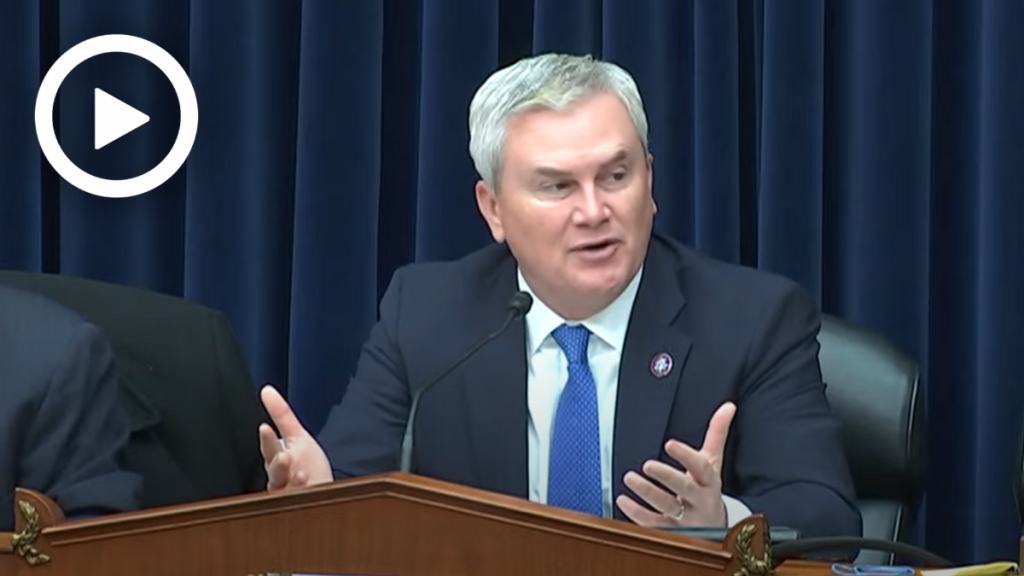Comer: OPM Policies Must Put the American People First
Opens hearing by emphasizing that Congress has a responsibility to ensure OPM is meeting their mission.
WASHINGTON – Today, House Committee on Oversight and Accountability Chairman James Comer (R-Ky.) delivered opening remarks at a hearing titled “Oversight of Our Nation’s Largest Employer: Reviewing the U.S. Office of Personnel Management.” In his opening statement, Chairman Comer emphasized that oversight of the U.S. Office of Personnel Management (OPM) is critical as it oversees personnel management policies and benefits for a workforce of over two million employees. He stressed that OPM has failed to prevent improper payments in the Federal Employees Health Benefits (FEHB) program and highlighted the agency’s enhanced telework policies that have hindered service and created crippling backlogs. Chairman Comer emphasized OPM policies must put the American people first and concluded that the Oversight Committee will hold OPM accountable for their operations to ensure the federal workforce is fulfilling their objectives.
Below are Chairman Comer’s remarks as prepared for delivery.
Today’s hearing is an opportunity to conduct oversight of our nation’s largest employer—the federal government.
The U.S. Office of Personnel Management oversees human resource and personnel management policies for a workforce of over 2.1 million employees across this country, many of whom are in or near the Washington, D.C. area.
Three years after the start of the COVID-19 pandemic, most of America has returned to in-person work.
However, while the Capitol and Congressional office buildings have reopened to the public and are back to in-person work, the same cannot be said for large portions of the federal government.
The President himself said during his 2022 State of the Union address—yes, last year—“It’s time for America to get back to work. People working from home can feel safe again and begin to return to their offices.”
Clearly, the President has at least stated that this is a priority for the Administration, and it is a priority of this Committee as well.
And yet, reports have shown that only one in three federal employees has returned to the workplace since the start of the pandemic.
Returning to in-person work means returning to the core mission of each federal agency, which is to serve the needs of the American people.
Unfortunately, casework backlogs and slow response times have become routine complaints since the pandemic.
In the private sector, negative feedback is damaging to a company’s brand and often leads to sweeping reforms to ensure that issues like these do not persist.
When customer service plummets in the federal agencies, where can the American people go for redress?
That’s why we are holding this hearing today.
Accountability—whether it be in the form of dismissing poor performers or modernizing merit-based hiring standards—must be a core feature of this discussion as we work to improve the functionality of government.
Without the public’s trust in knowing that the federal bureaucracy can—and will—be held accountable for delivery of service, we will continue to see poor performers erode public confidence in the entire federal workforce at the expense of those federal employees who are putting forth their best efforts to serve.
Additionally, recent reports have highlighted how lack of oversight in programs, such as the Federal Employee Health Benefits Program, have led to ineligible payments of between $1 and $3 billion annually.
Could you imagine if this error were to occur in the private sector?
It’s important that we continue to ask tough questions and reflect on how we can do better, because that is when we begin to see real reform.
In fact, last year Congress passed the largest postal reform package in over 20 years with wide bipartisan support.
I’m proud of what we were able to accomplish with my friends on the other side of the aisle, and I look forward to discussing the implementation of that bill later today as well.
We have a moral responsibility to be good stewards of federal resources and to provide the best standard of service possible for the American public.
We must work to ensure that the federal workforce can attract talented, service-minded Americans who work diligently and efficiently to deliver results for the American people.
I look forward to hearing from Director Ahuja today on how we can work together to improve the federal personnel management system and hopefully create a workforce that Americans are proud and excited to be a part of.
Director, thank you for being here today to testify.
